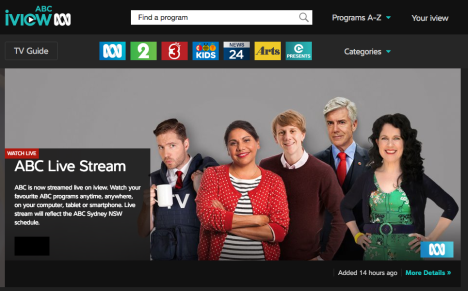Critics emerge for ABC’s new compulsory sign-in, but it’s the shape of things to come
DMPG managing director James Wawne examines the benefits and the backlash of the ABC’s shifting stance.
From July 1, all users of ABC iview will be required to sign in in order to view programs. Registration will become compulsory, with the national broadcaster asking for some basic optional profile information, stating that the move will help ABC support cross-device experiences and enable functionality such as watch lists and recommendations.
For younger consumers and those of us working in digital, the move will raise little surprise or concern. Recent consumer research tells us that the majority of consumers expect ‘connected experiences’ and ‘companies to anticipate their needs’ which necessitate users to identify themselves.


